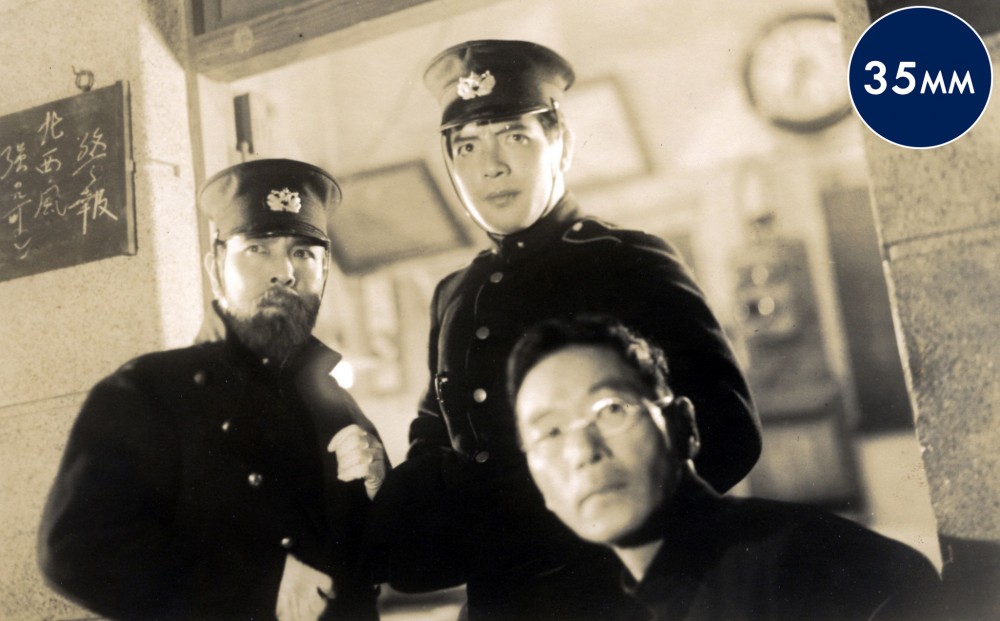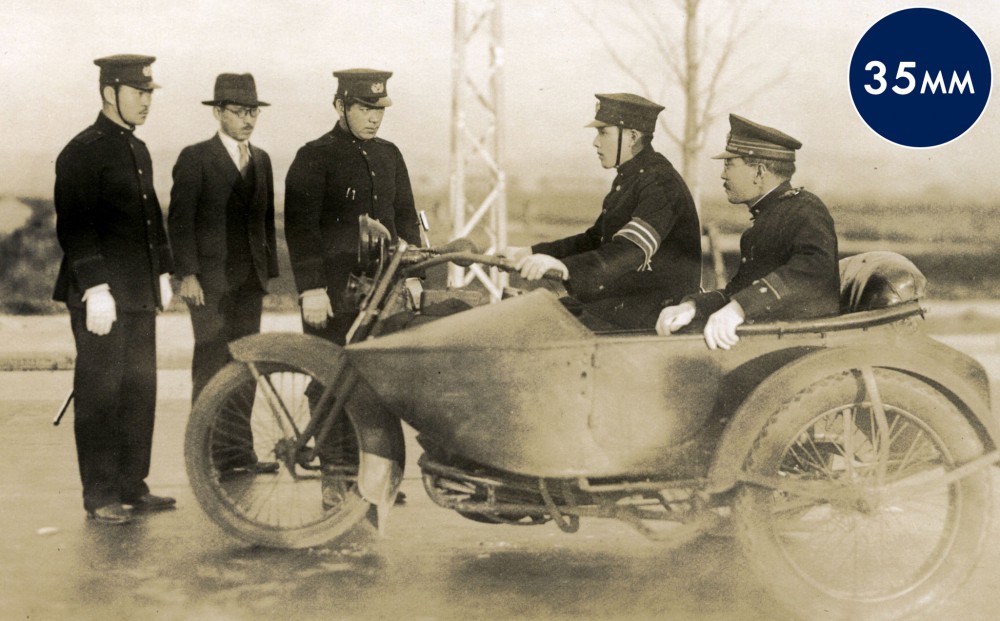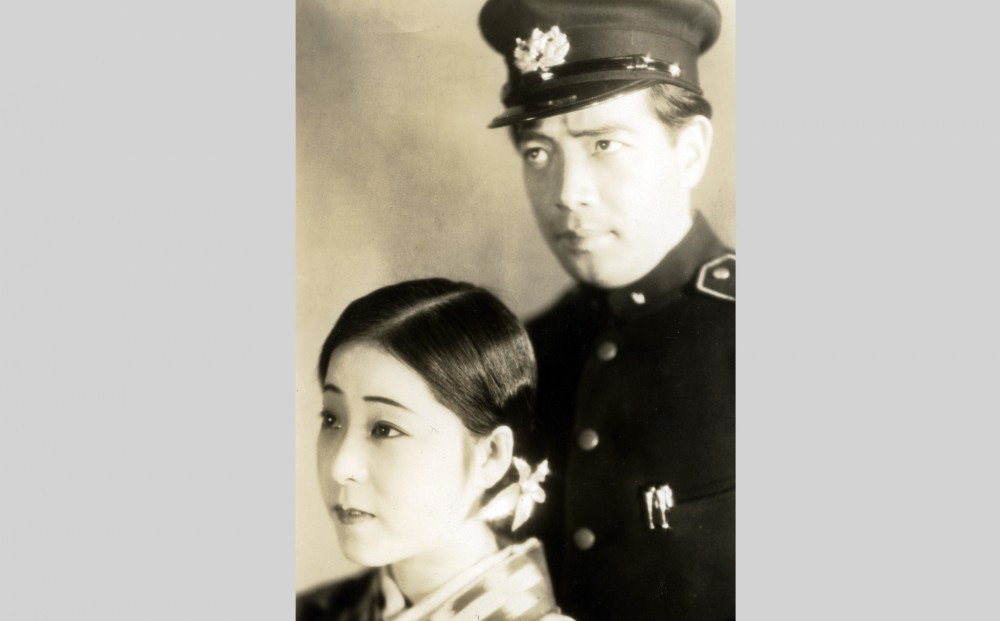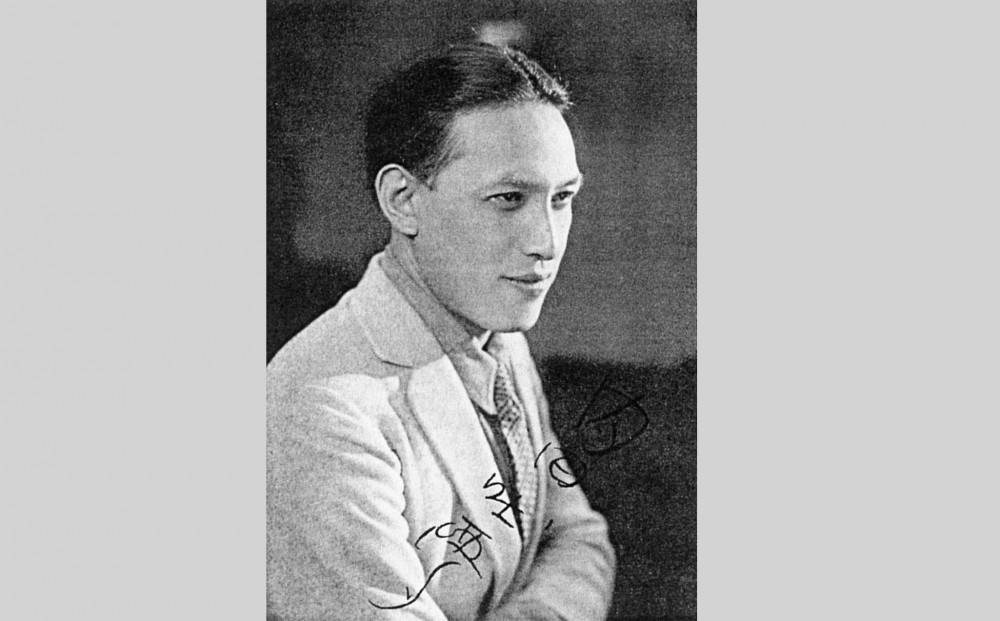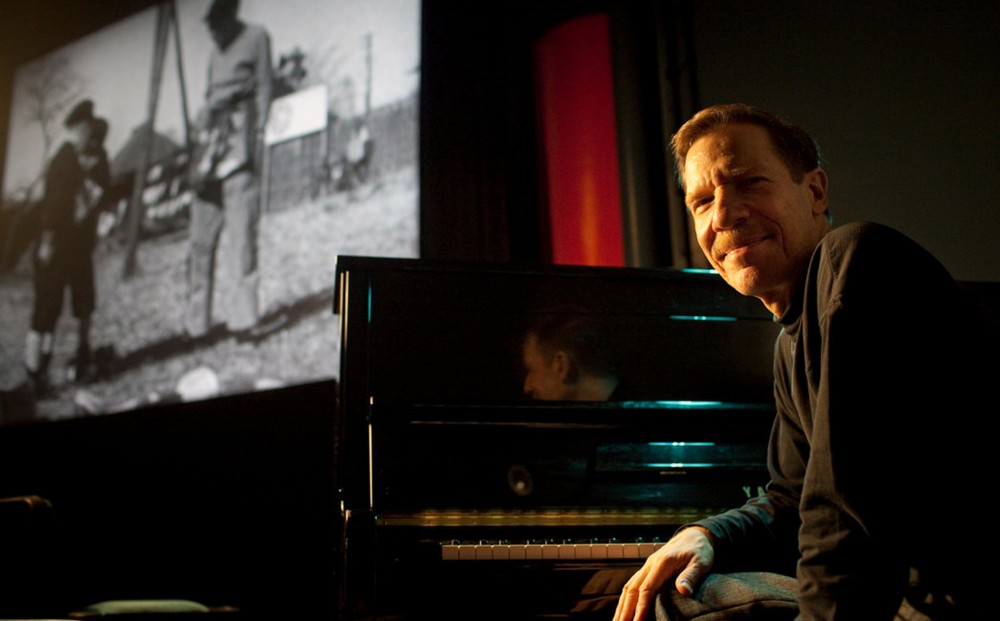POLICE OFFICER
7:30 ♪
Tuesday, December 18
♪ Live piano accompaniment by Steve Sterner
(1933, Tomu Uchida) Young cop Eiji Yamauchi rekindles his friendship with high school buddy Isamu Kosugi, only to find… Uchida’s sole surviving complete silent reveals a virtuosic style “that brings to mind Hawks and Lang” (MoMA). 35mm print courtesy of National Film Archive of Japan. Imported especially for this screening. Approx. 121 min.
Uchida’s sole surviving complete silent has been described by Senses of Cinema as “a tremendously stylish gangster movie about the love-hate relationship between a cop and a criminal, once childhood friends,” revealing a virtuosic style “that brings to mind Hawks and Lang” (Museum of Modern Art notes).
Unsung Japanese director Tomu Uchida (1898-1970) began his career in the silent era, though, apart from Police Officer, his silent work survives only in fragments. Many of his prewar sound films are also lost. In 1945, Uchida left Japan to work in occupied China, producing propaganda films. After Japan’s defeat Uchida stayed on to assist in the development of the Chinese film industry, but was held as a prisoner during their civil war, until his repatriation in 1953. He would go on to direct 22 more films, including dramas, comedies, and samurai epics.
Reviews
“The premise—dour cop and suave crook once were neighborhood pals—was a staple of 1930s Warner Bros. gangster dramas (a major influence on Japanese cinema of the era)… But while there is unmistakable Noir DNA in Police Officer’s themes and mise-en-scène, Uchida’s film is truly more a police procedural, prototype of Noir-stained policiers such as Jules Dassin’s The Naked City (1948) and Kurosawa’s Stray Dog (1949)... Combines starkly dramatic lighting effects with frantic tracking and panning that threatens to soar out of control at any moment… and impressionistic, breathtaking explosion of delirious technique.”
– Eddie Muller

